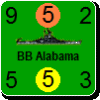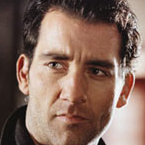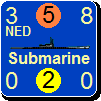ORIGINAL: Jagdtiger14
A great Dunkirk book is: Dunkirk: The Patriotic Myth.
warspite1
I've just read this book and I have to say that it is a pretty poor effort. I mean the author writes in a very clear, easy to read style, but as a history of the episode, the book is shall we say, fundamentally flawed. Simple, basic facts are wrong - Huntziger's 2nd Army don't appear to have been involved in the defence of the Meuse apparently?? and there is the rather shameful - if not downright dumb - inference that 400 SS troops were massacred by the Durham Light Infantry.
But then, working largely from secondary sources, the author has nothing new to add and so needs an angle to sell the book. That the British sought to withdraw and in so doing did not inform the French and Belgians, is not new, and as a result the author - no doubt in order to get the book published - needs to be as sensationalist as he can. He ends up simply repeating the same thing - each time in slightly different ways - over and over.
He provides little, if anything, by way of context for decisions that were made. There is a brief chapter in which he concedes the French were responsible for the loss of the Meuse, and he also comments on the brilliance of the evacuation operation, but otherwise there is no attempt to provide any sense of balance to the piece, and the portrayal of Lord Gort does the author no credit. All French and Belgians in and around Dunkirk and beyond were apparently desperate to attack the Germans but the British simply wanted to go home. Right.....*
Many (most?) French historians today are honest enough to admit that the French were defeated by the time the British began to think of evacuation (indeed in a documentary I watched recently
Dunkirk: The new evidence one French historian actually expressed surprise that the BEF waited as long as they did). So if one wants to read properly researched books that tell the true story - betrayal and all - in a balanced, grown up fashion there are plenty of better books - and documentaries - on the subject.
* Edit:
Let me give just one example of what the author misses out in order to make his monotonously repeated point. The author makes great play of the fact that the British supposedly cut and run at Arras for no go reason other than saving their own skins. Gort's superior at that time was General Blanchard, commanding the French First Army Group. Blanchard's aide General Fauvelle had a meeting with Weygand and Reynaud in which Fauvelle confirmed to the French CinC and President that the French 1st Army was "so weak it would be unwise to expect it to ever mount a counter-attack" and that in his opinion he was expecting "a very early capitulation". The author does not mention this meeting - nor does he make any comment on the state of the French forces at the time. Balanced? I don't think so.









